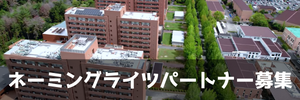(English announcement can be found in the latter half of this notice.)
広島大学バイオマスプロジェクト研究センターと中国地域バイオマス利用研究会の共催で広島大学バイオマスイブニングセミナーを開催しています。バイオマスに関する基本的な考え方から最先端の情報までをカバーして、この地域におけるバイオマスの活動に資することを目的とするものです。第71回を以下の日程で開催しますので、ご参集下さい。
日時
2019年1月24日(木)16:20~17:50
会場
広島大学東広島キャンパス工学部110講義室
広島大学 東広島キャンパス
https://www.hiroshima-u.ac.jp/en/access/higashihiroshimacampus
工学部 建物配置図
www.hiroshima-u.ac.jp/eng/access/building
工学部 講義室配置図
www.hiroshima-u.ac.jp/eng/access/lectureroom
プログラム
講演: 広島大学大学院工学研究科 M2 橋本 壮侍
「水熱条件下における有機態リンの無機化・有機物のガス化特性」
近年のリン鉱石枯渇問題から下水汚泥などの廃棄物からリンを回収し、リン鉱石の代替資源として利用する研究が行われています。そこで、下水汚泥の処理方法の一つとして水熱処理が提案されていますが、水熱条件下での有機態リンの分解特性は明らかではありません。本研究では下水汚泥中の代表的な有機態リンの一つであるDNAを原料として水熱処理を行い、その無機化特性及びガス化特性を確認しました。その結果、200℃付近でDNAからリン酸が生成されました。
講演: 広島大学工学部 B4 小川 寛太
「水熱反応場の直接質量分析」
水熱前処理は第二世代バイオエタノールの生産に関して、重要です。従って、前処理中に起こっている反応について知ることが必要となります。既往の研究ではDuangkaewらが、直接質量分析装置を使用することによって、これまで高温高圧で発見されていなかった物質を発見しました。それは水熱前処理の反応分析に効果的であることが分かります。しかし、ノズルスプレーでは、許容される圧力が限られました。本研究では、既往の研究より高温高圧での分析を可能とするためにニードルバルブを追加しました。
【講習会】 ≪熱化学的変換≫
講演:広島大学大学院工学研究科 教授 松村 幸彦
エネルギー資源の枯渇が問題視されているなか、太陽エネルギーを使って生物が作り出すバイオマス資源は、再生可能エネルギーとして風力・太陽光などの自然エネルギーとともに注目されています。バイオマスの有効利用には、適切な変換を行って2次エネルギーにする必要があります。バイオマスエネルギーの変換には、1)物理的変換、2)熱化学的変換、3)生物化学的変換の3種類があります。今回のイブニングセミナーでは、バイオマスの熱化学的変換について紹介します。
司会・解説:広島大学大学院工学研究科 教授 松村 幸彦
なお、18:00より意見交換会(参加費 800円)を開催します。ご都合の付く方はこちらにもご参加下さい。
The 71st Hiroshima University Biomass Evening Seminar
(The 46th Hiroshima University ACE Seminar)
Biomass Project Research Center, Hiroshima University, and HOSTY Association are co-organizing the Hiroshima University Biomass Evening Seminar. This seminar covers topics from the fundamentals of biomass to the latest information so that it can contribute the activities on biomass in this district. The 71st seminar will be held as follows. Please join.
Date & Time
Thu.24 Jan., 2019 16:20-17:50
Place
Engineering 110 Lecture Room, Higashi-Hiroshima Campus, Hiroshima University
Higashi Hiroshima Campus, Hiroshima University
https://www.hiroshima-u.ac.jp/en/access/higashihiroshimacampus
School of Engineering Buildiing map
https://www.hiroshima-u.ac.jp/en/access/higashihiroshimacampus/aca_7
School of Engineering Lecture room map
www.hiroshima-u.ac.jp/eng/access/lectureroom
Program
Lecture: Soshi HASHIMOTO
M2 Student, Graduate School of Engineering, Hiroshima University
“ Characteristics of Mineralization of Organic Phosphorus and Gasification of Organic Material under Hydrothermal Condition ”
Due to the recent problem about depletion of phosphate rock, researches about recovery of phosphorus from the waste like sewage sludge and utilization of them as alternative resource of phosphate rock has been conducted. Hydrothermal treatment is expected as the one of treatment for sewage sludge, but decomposition characteristics of organic phosphorus under hydrothermal treatment hasn’t been elucidated. In this study, hydrothermal treatment of DNA, which is one of major organic phosphorus contained in sewage sludge, was conducted. As the result, the characteristics of mineralization and gasification was elucidated.
Lecture: Kanta OGAWA
B4 Student, School of Engineering, Hiroshima University
“In-situ Mass Spectrometry for Hydrothermal Reaction Field”
Hydrothermal pretreatment is important for production of the second generation bioethanol. Thus, knowledge on the reaction occurring during pretreatment is needed. In previous study, Duangkaew et al. discovered substances that have not been detected in high pressure and high temperature condition using in-situ mass spectrometry, showing its effectiveness on reaction analysis for hydrothermal pretreatment. However, the allowable pressure was limited by the nozzle spray. In this study, we added needle valve to enable analysis at pressure and temperature higher than that of previous study.
[Biomass Lecture Series] “Thermochemical conversion”
Lecture: Yukihiko MATSUMURA
Professor, Graduate School of Engineering, Hiroshima University
While depletion of energy resources is regarded as a problem, biomass resources produced by living organisms by using solar energy are attracting attention as renewable energy along with natural energy such as wind power and sunlight. For effective utilization of biomass, it is necessary to convert it to secondary energy by appropriate conversion. There are three types of biomass energy conversion: 1) physical conversion, 2) thermochemical conversion, 3) biochemical conversion. In this evening seminar, we will introduce the thermochemical conversion of biomass.
Chair & Commentary: Yukihiko MATSUMURA
Professor, Graduate School of Engineering, Hiroshima University
We will hold the discussion meeting from 18:00 (800 JPY needed). Join this meeting too, if you are available.


 Home
Home




